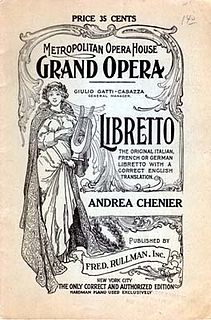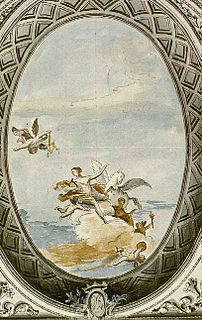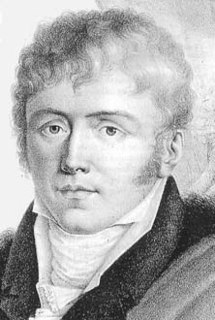Lo spirito di contradizione (The Spirit of Contradiction) is an opera buffa in three acts by Pietro Alessandro Guglielmi.
Opera buffa is a genre of opera. It was first used as an informal description of Italian comic operas variously classified by their authors as commedia in musica, commedia per musica, dramma bernesco, dramma comico, divertimento giocoso.
Pietro Alessandro Guglielmi was an Italian opera composer.
Contents
Guglielmi contributed a large part of the music to Pasquale Anfossi's 1763 opera Lo sposo di tre e marito di nessuna, which had a Neapolitan libretto by Antonio Palomba. Much of this work was reused by Guglielmi for Lo spirito di contradizione, with the text revised for the Venetian audience by Gaetano Martinelli.

Pasquale Anfossi was an Italian opera composer. Born in Taggia, Liguria, he studied with Niccolò Piccinni and Antonio Sacchini, and worked mainly in London, Venice and Rome.

A libretto is the text used in, or intended for, an extended musical work such as an opera, operetta, masque, oratorio, cantata or musical. The term libretto is also sometimes used to refer to the text of major liturgical works, such as the Mass, requiem and sacred cantata, or the story line of a ballet.
Antonio Palomba (20 December 1705 - 1769) was an Italian opera librettist, poet, harpsichordist, and music educator. He also worked as a notary. Born in Naples, he became a teacher of the harpsichord at the Teatro della Pace in 1749. Most of his more than 50 opera libretti were comedic works written for composers of the Neapolitan school. He also wrote some works for performance in Florence, Bologna and abroad. He died in Naples in 1769; one of the victims of a fever epidemic in the city. Many of his libretti were set more than once to music, and composers continued to use his libretti up into the 1830s.











